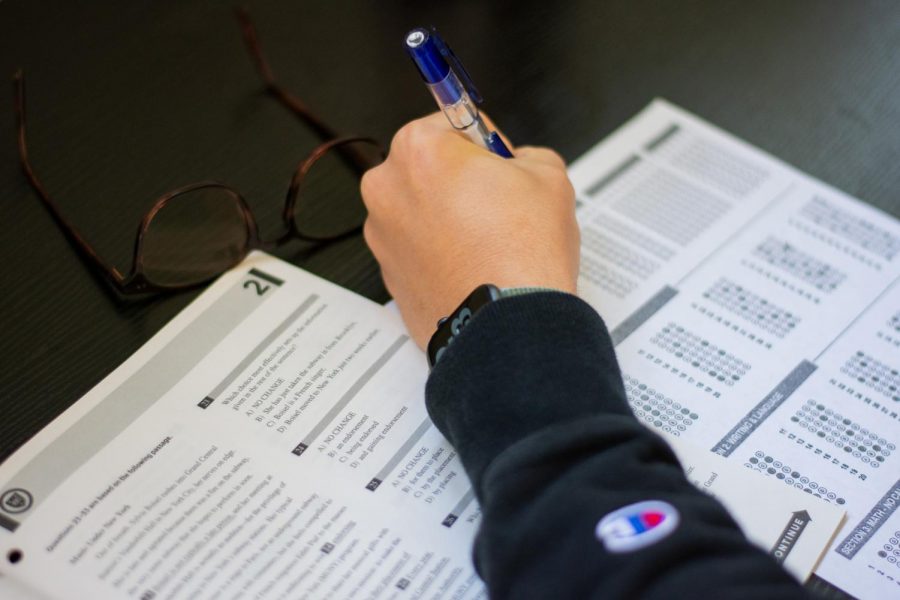The University of California Board of Regents voted to make the ACT and SAT optional in May of 2020. Now a year later, the entire UC system has decided they will no longer accept SAT scores for fall 2022 applicants as a part of the admissions decisions. This is a significant leap for our public education system but has also created some controversy.
For almost a century, the SAT and ACT have been a vital part of college admissions, allowing colleges to compare all students from different high schools. However, recent social changes have brought up that these testings are discriminatory towards students at a disadvantage, such as those from low-income backgrounds, people of color, and those with disabilities.
“The SAT does not give all students a fair chance to get into colleges. Personally, I was fortunate enough to have a tutor to prepare for the SAT, but I know that many students are unable to receive that kind of help, which puts them at a disadvantage when applying to colleges,” Sophia Stone, a senior, said.
Arguably, the public education system has not changed, keeping the same principles and ways of teaching. With this, the SAT continuously makes it difficult for poverty-stricken students to receive the resources they need to get a high SAT score and better their chances of being accepted into college. This has caused controversy over the reliability and the necessity of the SAT, questioning whether the SAT is an accurate measure of academic skills needed for success in college.
Some may say that because low-income students are provided fee waivers covering two free SATs and six free SAT subject tests, the test is entirely fair for all students from different socioeconomic backgrounds. However, these fee waivers do not cover SAT classes and private tutoring. SAT tutoring, which is highly expensive, has been proven to increase one’s overall test score. In addition, only having two attempts to take the test might not be enough for the average student to improve their score.
Research has shown that students from higher socioeconomic backgrounds have significant advantages during the college application process than students from lower socioeconomic backgrounds. Family income, parents’ education, and race have accounted for 35% of the variation in test scores among applicants to any UC school in 2011.
Although colleges have repeatedly strived towards more equality for all students through providing more affordable tuition with scholarships and aid, the underlying problem of expanding access is still a considerable problem.
“Some elite colleges have focused more on being affordable to low-income families than on expanding access. ‘Free tuition only helps if you can get in,’ said Danny Yagan, an assistant professor of economics at the University of California, Berkeley,” said Gregor Aisch, Larry Buchanan, Amanda Cox, and Kevin Quealy from the New York Times.
Due to the COVID-19 pandemic, more colleges have decided to make the SAT test-optional. This means that colleges will no longer require students to submit their SAT scores as a part of their college admissions process. While this may seem like a good thing, and students may be glad they no longer have to take the dreaded and stressful test, this is not true. Although colleges say they no longer require the SAT, that does not mean you do not have to take it.
“It never hurts to take the SAT. The biggest thing is that you are showing you can take a test and want to put in the extra work. Meaning test-optional does not really mean test-optional because not taking it is still a detriment to your college applications,” Chris Damaskos, a first-year STEM Major, said.
This begs the question of whether or not you need to take the SAT to get into college. The short answer is yes. For the near future, unless the college you’re applying to will not accept your SAT score, it is still necessary for your college admissions. However, it goes without saying that your GPA and the rest of your application are still critical.













